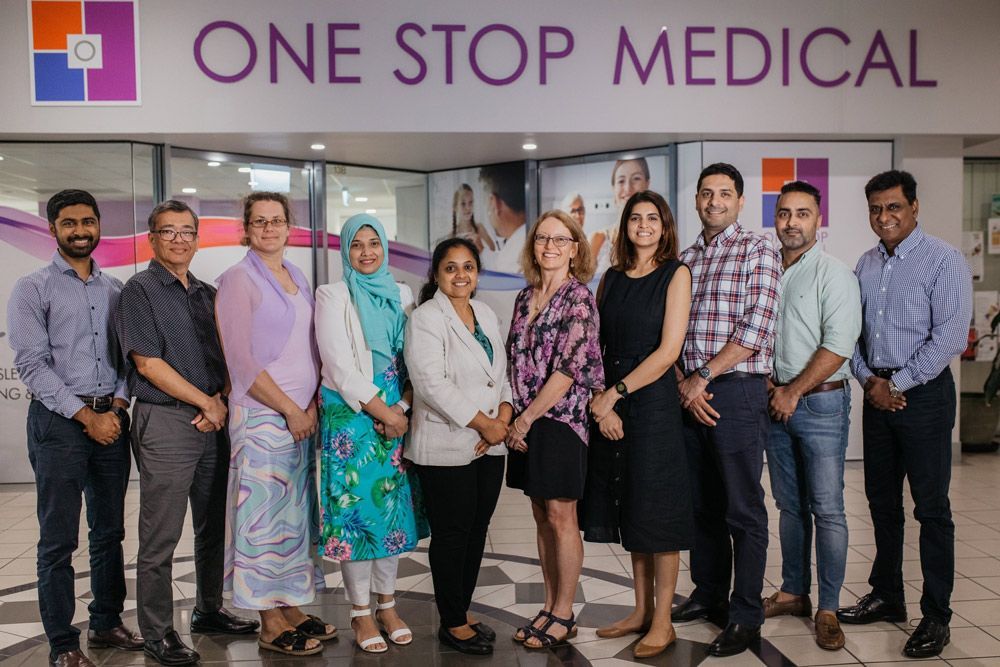The Importance of Regular Check-Ups with Your Local GP
Keeping up with routine health appointments is often overlooked, especially when there are no obvious signs of illness. However, general check-ups with a local GP play an important role in long-term wellbeing. These appointments allow for ongoing monitoring, open conversations about any concerns, and adjustments to care where needed. Regular visits can support a better understanding of individual health patterns and may assist with managing changes as they occur. In this blog post, we’ll delve into why scheduling consistent check-ups with a GP near you can be a practical and valuable habit at any stage of life.
Why Routine Health Checks May Be Worth Considering
Many health conditions progress quietly, with few obvious symptoms in the early stages. Relying solely on symptoms before seeking medical support might delay useful health checks.
Some advantages of regular visits can include:
- Creating a baseline record of your health for future comparisons.
- Monitoring vital signs such as blood pressure or heart rate over time.
- Addressing lifestyle habits or early indicators of discomfort before they potentially become significant.
Appointments don’t have to be prompted by illness. A routine visit may open the door to a wider conversation about general well-being.
Tracking Chronic Conditions: A Partnership for Better Health
Living with a long-term condition can involve a mix of medications, symptom tracking, and lifestyle adjustments. Regular appointments with a GP can support this process by maintaining continuity and providing a space to discuss progress or changes.
These visits can involve:
- Reviewing management plans for conditions like asthma, diabetes, or high cholesterol.
- Adjusting approaches in response to test results or new symptoms.
- Exploring whether referrals or allied health support might be beneficial.
:For individuals managing ongoing conditions, having a consistent point of contact may make it easier to keep health needs aligned with daily life.
Life Stages & Health Milestones: What to Expect at Every Age
Health needs can evolve with age, and regular GP visits may help align check-ups with life’s changes. What might be relevant in your 20s could look very different from the discussions in your 50s or later years.
Common health topics by age might include:
- 20s–30s: Sexual health, mental wellbeing, and skin care.
- 40s–50s: Heart health, cancer screenings, and metabolic markers.
- 60 & beyond: Joint mobility, memory health, and medication reviews.
Working with a local GP allows tailored guidance based on your personal and family health history.
Stress, Sleep & Mental Health: More Than Just Physical Care
Not all health challenges are visible. Issues like disrupted sleep, prolonged stress, or low mood can affect how you function day to day. A GP can be a first step toward exploring these concerns further.
Potential areas that might be covered include:
- Identifying patterns in sleep or fatigue and how they may be linked to lifestyle.
- Discussing emotional well-being, including feelings of anxiety or low mood.
- Considering whether support options such as referrals or follow-up assessments could be appropriate.
Discussing these aspects of health may help create a clearer picture of how different areas of life interact. While not every concern will require treatment, having a regular doctor who understands your health history can make it easier to track changes and seek support if and when it’s needed.
Why Building a Relationship with Your GP Matters
Having a regular doctor can help make future visits feel more familiar and less daunting. Over time, a GP may become more aware of your health trends and preferences, making it easier to navigate decisions together.
This kind of ongoing relationship can support:
- Continuity of care through long-term monitoring and health history.
- More time-efficient appointments, as previous notes can provide context.
- Shared decision-making that aligns with your health goals and lifestyle.
This familiarity can make discussions feel more collaborative and less clinical.
Preventive Screenings & Tests You Might Be Missing
Not all health concerns come with clear symptoms. Some conditions are detectable through routine tests or screenings before they affect daily life. GPs can advise on what checks might be useful based on your age, family history, and overall health.
Examples of routine assessments include:
- Blood tests for cholesterol, blood sugar, and liver or kidney function.
- Skin checks for unusual moles or changes in pigmentation.
- Screening referrals, such as mammograms or bowel tests, depending on eligibility.
- Having these checks done periodically may help highlight issues that could be overlooked.
Vaccinations & Immunity: Staying Current & Protected
Vaccinations aren’t limited to childhood. As people move through different life stages, or take on new roles—like becoming parents or travelling—they may need updates or boosters.
During a GP visit, the following might be discussed:
- Reviewing immunisation records to identify any gaps.
- Offering advice on seasonal vaccines, such as those for influenza.
- Discussing recommended vaccines based on occupation, travel, or age.
Staying up to date with vaccinations may help reduce the impact of certain illnesses in the community and provide protection during outbreaks.
Busy Schedule? How GPs Help You Prioritise Your Health
For many, finding the time to visit a doctor can feel like a challenge. Work hours, family responsibilities, or long commutes may push check-ups to the bottom. Still, delaying visits might mean missing the chance to address concerns early.
Some practical approaches might include:
- Booking early morning, lunchtime, or after-hours appointments, where available.
- Combining multiple queries into a single appointment for efficiency.
- Using reminder systems to stay on track with check-ups, screenings, and vaccinations.
Taking small steps towards regular GP visits may help reduce the need for more complex care later.
Talk to a Doctor Near You About Your Health Needs
If you’re new to the area or looking to reconnect with your healthcare, scheduling a routine visit can be a useful starting point. At One Stop Medical, general practitioners are available to assist with a range of services that support ongoing health and well-being. Whether you’re interested in a basic check-up or want to discuss longer-term management, it’s a good time to begin. To book with a doctor in Mackay, get in touch with One Stop Medical.








